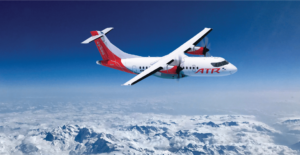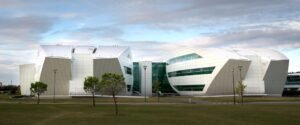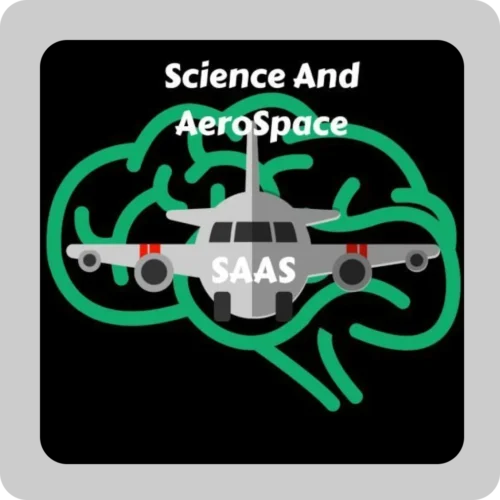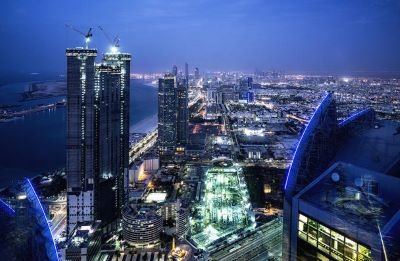A Brief Overview of Toulouse’s Aerospace Industry

Another key player in Toulouse’s aerospace landscape is ATR, which specializes in the production of regional aircraft. This company, a joint partnership between Airbus and Leonardo, has gained a solid reputation for developing fuel-efficient turboprop aircraft, catering to the needs of regional airlines and enhancing air connectivity. ATR’s commitment to performance and sustainability has significantly influenced the regional aviation market, making it a vital part of Toulouse’s aerospace ecosystem.
In addition to these major corporations, Toulouse houses several specialized engineering and research institutions, such as the Toulouse Aerospace Institute. This organization focuses on advancing knowledge and skills in aerospace engineering, contributing to various research projects aimed at addressing current and future industry challenges. The collaboration between these institutions and companies fosters an environment of innovation, allowing for significant advancements in aerospace technology and practices. The concentration of expertise and infrastructure in Toulouse creates a unique ecosystem that not only attracts investment but also cultivates talent, further solidifying its position as a leading hub in the aerospace sector.
The Economic Impact of Toulouse’s Aerospace Industry
The aerospace industry in Toulouse is not only a cornerstone of the local economy but also significantly bolsters the regional economic landscape. With Airbus as a key player, the sector has generated a multitude of job opportunities. Currently, it is estimated that approximately 44,000 individuals are employed directly within the aerospace sector, while the industry supports an additional 100,000 jobs in auxiliary services and secondary industries. This expansive employment network underscores the aerospace industry’s status as a pivotal force in job creation and workforce development in the region.
In terms of economic output, Toulouse’s aerospace industry contributes substantially to the Gross Domestic Product (GDP) of the Occitanic region. Reports indicate that the sector accounts for about 22% of the region’s overall economic performance. The production of aircraft and related technologies not only fuel local business growth but also attract foreign investment, further enhancing overall economic resilience. Subsequently, a stimulating environment for research and development endeavors has emerged, directing funds toward innovation and specialized knowledge centers within the region.
The aerospace industry in Toulouse also catalyzes growth in auxiliary industries, including the supply chain, maintenance services, and advanced technologies. For instance, the development of new aerospace technologies has led to advancements in sectors like data analytics, manufacturing, and sustainable materials, all of which benefit from the industry’s ongoing evolution. Insights derived from recent case studies reflect that these allied industries not only thrive due to this aerospace-centric ecosystem but also drive technological advancements and financial growth.
Looking ahead, the future economic trends suggest that the aerospace industry will continue to be an engine of growth for Toulouse. The climate of innovation and investment driven by the aerospace sector indicates a positive trajectory for economic development. As demand for aerospace products and services rises, it is expected that job creation and regional GDP contributions will likewise grow, securing Toulouse’s role as a critical hub for the aerospace industry in Europe.
The aerospace industry in Toulouse is viewed as being on the cusp of a transformative future, influenced by emerging technologies and evolving regulatory landscapes. One promising trend is the development of electric and hybrid aircraft, aimed at reducing carbon emissions and dependence on fossil fuels. Significant investments in research and development have been directed towards these advancements by companies in Toulouse. The momentum behind sustainable aviation is increasing as stakeholders focus on addressing climate change and environmental concerns. The adoption of greener technologies and practices is expected to enhance the global competitiveness of Toulouse’s aerospace sector while aligning with environmental regulations.
Nevertheless, the shift towards sustainability is accompanied by challenges. Intense global competition necessitates a relentless focus on innovation, with differentiation through cutting-edge technologies and superior product offerings being required to maintain market share. Workforce shortages are also being experienced, as the pace of technological advancement outstrips the availability of skilled professionals. Addressing this talent gap is considered essential for sustaining the innovative and sustainable growth of Toulouse’s aerospace sector.
Future Trends and Challenges in Aerospace
Regulatory changes are also regarded as potential challenges to advancements within the industry. As environmental regulations are tightened globally, aerospace manufacturers in Toulouse are required to adapt rapidly to comply without stifling innovation. Ensuring new technologies meet regulatory standards while fostering creativity will demand collaborative efforts among industry stakeholders and policymakers. Continued investment in research and development is deemed critical, with strengthened partnerships between private companies, research institutions, and government entities being necessary to sustain the aerospace ecosystem in Toulouse amidst global competition and regulatory pressures.
In conclusion, the future of Toulouse’s aerospace industry is seen as dependent on the embrace of emerging technologies, the management of regulatory challenges, and the cultivation of a skilled workforce. By proactively addressing these issues, Toulouse’s position as the headquarters of Europe’s aerospace industry can be reinforced.


